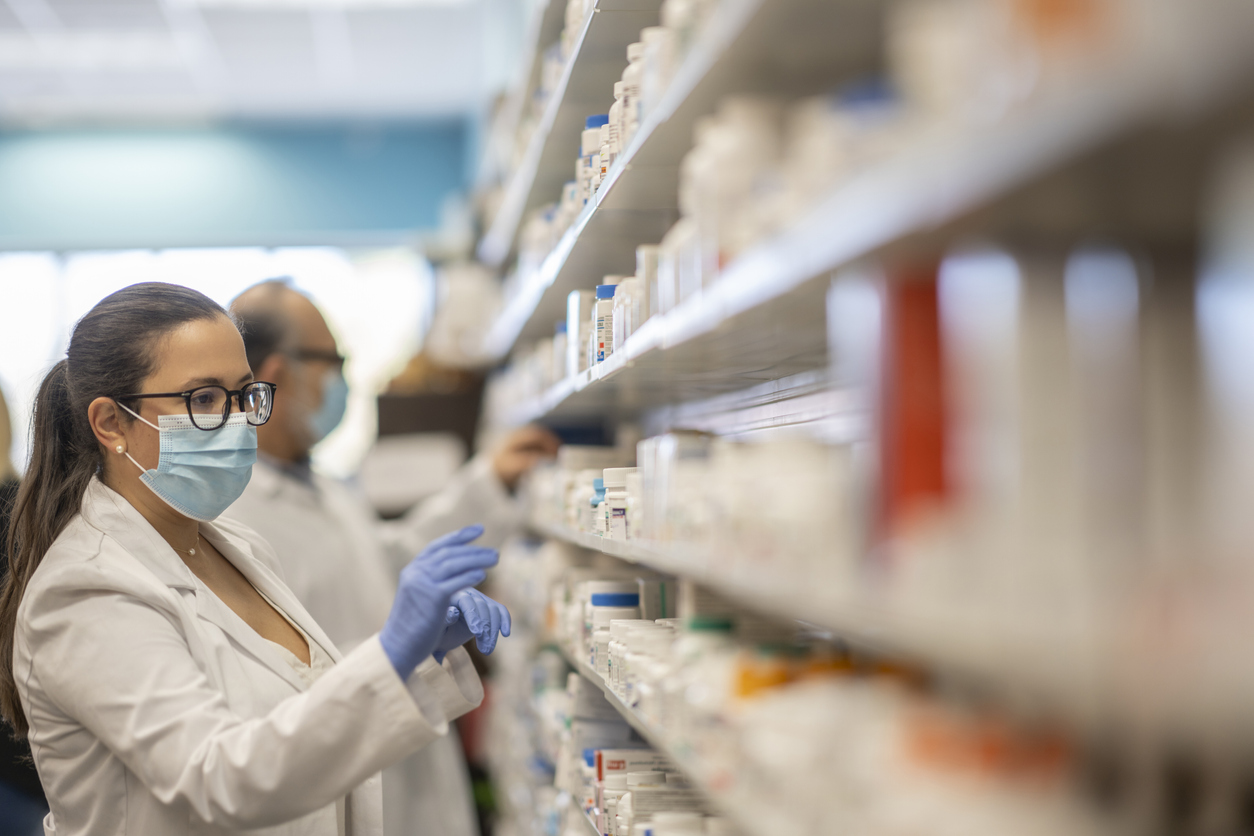Education
The most significant difference between a pharmacist and a pharmacy technician is the depth of their training. Depending on the state, pharmacy technicians typically take around a year or less to complete while Pharmacists must take at least six years.
Pharmacy Technician Education
There are no defined national education standards for pharmacy technicians. Training programs can be a certificate, diploma, or associate degree. The course lasts between eight weeks to two years, depending on the program. Certificate programs often take less than a year, while diploma programs might take between one year to 18 months, and an associate degree takes up to two years to complete.
Many states do not require a pharmacy technician to have any formal post-high school education. Working as a pharmacy technician in these states with no experience or previous training is possible. On the other hand, in some states, pharmacy technicians must obtain certification before practicing in a pharmacy. In these states, you\’ll be required to pass the Pharmacy Technician Certification Exam (PTCE), a standardized test governed by The Pharmacy Technician Certification Board (PTCB). The Pharmacy Technician Certification Board is an organization responsible for certifying pharmacy technicians, creating pharmacy protocols, and providing pharmacy education.
You can use various pharmacy technician training courses to pass the PTCE. Different institutions, such as universities, private institutes, and online colleges, offer these courses. Other large pharmacies also provide in-house training for their employees. Such training programs typically include eight weeks of classroom training followed by six months of on-the-job practice.
Pharmacist Education
To be a pharmacist, you must have a doctorate in pharmacology (PharmD), which takes at least six years to complete. Earn a PharmD degree after four years of college study and at least two years of pre-pharmacy training. After that, complete a one-year apprenticeship under the supervision of a qualified pharmacist. The last stage of becoming a pharmacist is obtaining a pharmacy license. In order to practice, you\’ll have to pass the North American Pharmacist Licensure Examination (NAPLEX) and register with the State Board of Pharmacy.
Knowledge
Pharmacy technicians\’ studies cover areas such as pharmacy law and ethics, pharmaceutical dosage calculations and administration, HIPAA laws, and more. These programs equip pharmacy technicians with the skills necessary to undertake daily pharmaceutical tasks and collaborate with the pharmacist. As a pharmacy technician, you\’ll have to understand prescription standards, handle confidential patient data, process insurance claims, and keep track of pharmacy records.
A pharmacist\’s education is much more extensive than a pharmacy technician\’s, and their education is founded on scientific principles. Still yet, a pharmacist has to study everything a pharmacy technician does. Their programs entail scientific studies such as pharmaceuticals, microbiology, chemistry, pharmacology, biology, and biochemistry, among others.
A pharmacist\’s education system provides them with a solid understanding of how the human body operates and how medications affect it. As a pharmacist, you must master, recognize, and distinguish between various drugs, have an understanding of each prescription, and how pharmaceuticals react with one another. Pharmacists must also keep up with current advancements in the field of medicine.
Duties
Although pharmacists and pharmacy technicians work in a pharmacy, their duties and responsibilities are very different. Pharmacy technicians assist pharmacists in filling and delivering prescriptions. On the other hand, pharmacists are responsible for ensuring patients receive the correct medications.
What Does a Pharmacist Do?
The pharmacist is in charge of everything that takes place within the pharmacy and ensures medications are delivered safely and effectively. Before selling a prescription to a patient, they must double-check it to ensure it is safe, accurate, and filled appropriately. Additionally, they may give immunizations, liaise with doctors and insurance providers, and confirm no adverse reactions to drugs.
Pharmacists also offer advice, recommend over-the-counter drugs, or refer patients to a specialist depending on the symptoms they describe. Some states allow pharmacists to issue prescriptions for regularly administered non-regulated medications like antibiotics and minor pain killers.
What Does a Pharmacy Technician Do?
Pharmacy technicians work hand in hand with pharmacists to ensure the smooth operation of the pharmacy. The pharmacy technician dispenses medication after receiving approval from the pharmacist. A pharmacy technician can take a patient\’s prescription, but a pharmacist must review and approve it before filling. Pharmacy technicians also support pharmacists with administrative responsibilities like cashiering, insurance claims processing, documentation, and inventory management.
A pharmacy technician and the pharmacist collaborate to protect their patients\’ safety and well-being. The primary distinction between both professions is the pharmacist is legally allowed to advise patients on using specific medications. In contrast, pharmacy technicians prepare and give medications with the guidance of a pharmacist. They may also give doctors advice on what type of medication to administer and at what dosage.
Pursue a Pharmacist Career With SCI
A pharmacist and a pharmacy technician may look pretty much the same but vary significantly in terms of their training duration, responsibilities, and education depth. Both professions depend on each other and are similar in being equally rewarding in saving patients\’ lives. Before starting your career journey in pharmacy, it is crucial to consider factors such as time, licensing, qualifications, and training programs. If you\’re interested in working in a pharmacy, Southern Careers Institute (SCI) can help you train on the skills needed to pursue a pharmacy technician career.
Talk to us today to seek more information about SCI\’s pharmacy technician program at our campuses.











